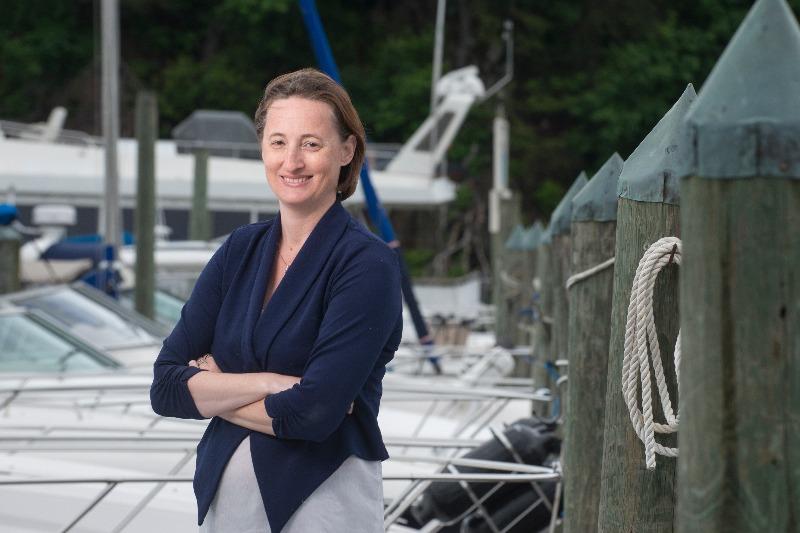
Associate Professor of Mechanical Engineering created an online tool to simulate how Covid-19 spreads among migrant communities. Photo by Evan Cantwell.
Mason Engineering’s Leigh McCue developed a virtual tool to help farm owners across the United States learn how COVID-19 spreads among the migrant worker community.
The food pipeline in this country depends on temporary agricultural workers on H2A visas, and farm owners provide board for these workers, which usually results in people living in close quarters.
This poses a problem for mitigating the spread of the coronavirus should anyone in the camps get sick, and McCue, an associate professor in the Department of Mechanical Engineering, wanted to develop a user-friendly tool that would show how the virus could potentially spread and how certain actions can help.
“You really don’t want farm workers getting sick for multiple reasons,” says McCue. “We worry about their health and being able to maintain the worker population that is needed to run the farms and keep the food pipeline going. There are a lot of implications.”
When McCue was looking at modeling how a sick person traveling through the airport could affect the spread of the coronavirus, she reached out to contacts at the Northeast Center for Occupational Health and Safety and found out they needed a similar model for migrant workers on farms.
“We use proximity detection and are using a model similar to the ones people use when they explain flattening the curve. We look at how the virus spreads with different factors—when people sleep close to each other, if they don’t, or if they are handwashing and using face coverings, and how that will improve the likelihood of positive outcomes,” McCue says.
She says this tool is for preventative measures and could be applied to other situations. “This model could be adapted so people could plug in some basic factors, whether it’s in an airplane, in a hospital, or on a farm. There are all sorts of these confined environments where being able to understand how interactions affect the spread of the virus could be really useful."
McCue hopes to explore these different situations to do what she can in this crisis. “In these stressful times, I just want to do what I can.”
